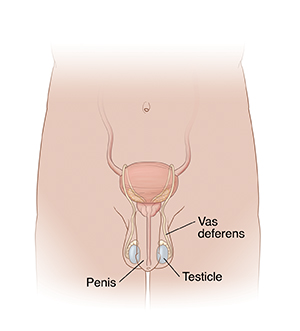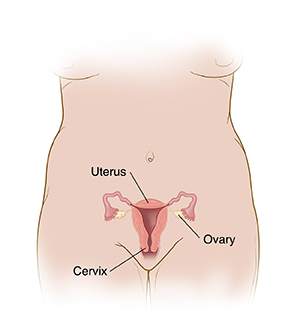Adult CF: The Reproductive System
People with cystic fibrosis (CF) have a protein in their cells that doesn’t work right. This protein is called the cystic fibrosis transmembrane conductance regulator (CFTR). CFTR controls the flow of water and certain salts in and out of the body’s cells. As the movement of salt and water in and out of cells changes, mucus becomes thickened.
In the reproductive system, the thickened secretions can cause blockages. These can affect how the sex organs develop and function.
CF does not affect sexual drive or performance. But it may cause these symptoms:
- Delayed sexual development
- Absence or stopping of menstruation
- Irregular menstrual periods
- Inflammation of the cervix
- Infertility or sterility
- Anxiety or feeling of negative body image
For most men with CF, the tube that carries sperm to the penis (vas deferens) does not develop. This is called congenital bilateral absence of the vas deferens (CBAVD). This condition does not affect a man’s ability to have sex. But he can’t get a woman pregnant normally. Assisted reproductive technology (ART) may help if a man chooses to start a family. Most men with CF still produce sperm in the testicles. This means they may still have biological children with the help of ART.
Women with CF may have irregular ovulation and an increase in thick cervical mucus. This may make it harder for them to get pregnant. But most women with CF can get pregnant. Women with CF should use birth control if they don't want to be pregnant. Women who have trouble getting pregnant can consider ART as a way to start a family.


Both men and women should think about the added demands of parenthood and how it might affect their own health. The decision is personal. Women with CF especially need to make sure they are healthy enough to carry a child. Talk with your healthcare team if you are thinking about parenting or having a baby.